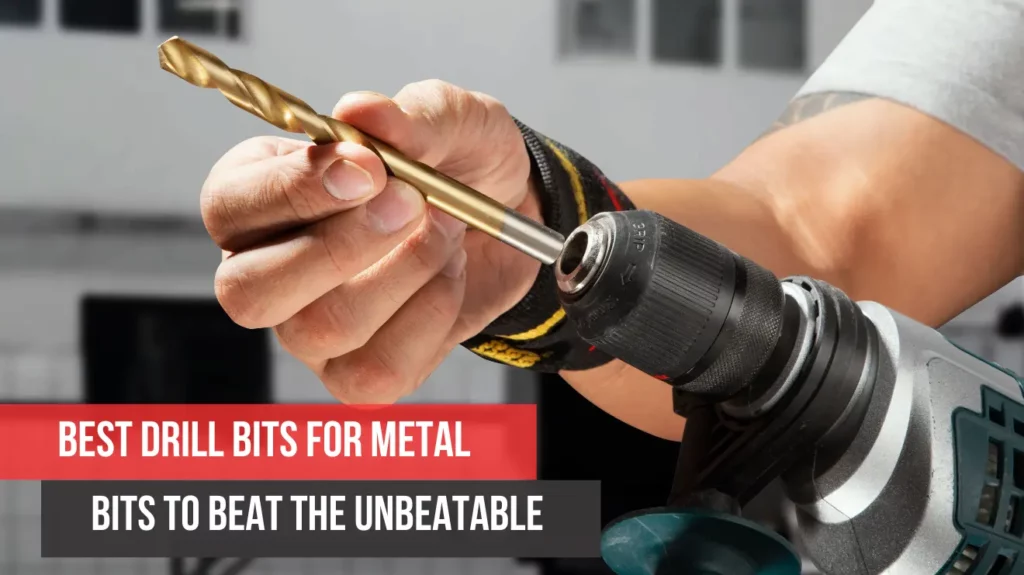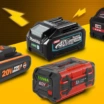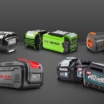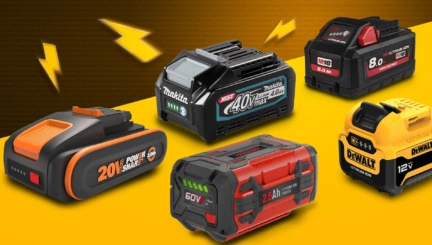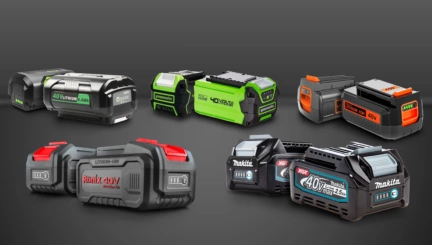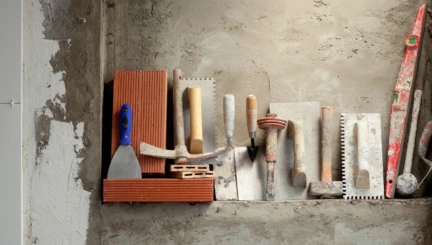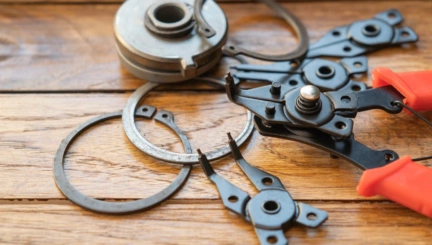- 8min
- 3993
- 0
Metal may seem unyielding and impenetrable, but with the right drill bit, you can engrave a mark into its very heart.
Choosing the best drill bits for metal is not just important; it’s essential. Craftsmen rely on them to assemble various parts of automobiles or airplanes, create holes in metal pipes and sheets, or secure steel beams to concrete structures. DIY enthusiasts planning home improvement projects and artists venturing into the world of metal art also depend on these tools.
To truly conquer the metallic bond between atoms on a metal surface, you need a tool capable of slicing through the most resilient materials. However, the best drill bits for metal offer much more than sheer strength. In this article, we will delve into the array of features and characteristics that make these drill bits indispensable. Stay with us for an in-depth exploration of these critical attributes, helping you make the right choice for your specific projects.
Suggested tool: 5923 Ronix SDS Plus Drill Bit 10×160 mm-France
Buying guide for the best drill bit for metal

When it comes to buying drill bits, your choices are numerous and varied. You can choose from an extensive array of options that have different features to fulfill different needs. Let’s take a look at all the characteristics that set these little hole makers apart:
Material

Based on the application they are designed for, drill bits are made of different body material the most common of which are:
- Steel: Affordable, versatile, best suited for drilling into wood, plastic and soft metals (like aluminum and copper)
- HSS: Durable, heat resistant, best suited for wood and soft-to-mild metals
- Cobalt: ideal for high-speed drilling into hard materials
What are the Best Drill Bits for Metal Made of?
As a drill bit bites into metal, friction and heat are generated. Therefore, in addition to being sharp and precise, the best drill bits for hard metal should be extremely durable and heat resistant, features that can be found in cobalt made models like Ronix RH-5502.

Made of a 5% cobalt, this drill bit is extremely heat and wear resistant and has a quick-change shank to fit all the power tools easily. Thanks to sharpened cutting edge, you can expect a great performance from this bit.
Tip Coating
The tip coating plays a vital role in any drill bit, acting as a protective shield against wear and corrosion caused by heat generation and friction. The lower the heat and friction are, the higher the durability of the piece and the more efficient its performance would be.

Different coatings are tailored for specific materials, ensuring optimal performance. Some notable options include:
- Black oxide
- Titanium nitride
- Diamond coated
- Cobalt coated
Among these coatings, black oxide is the most commonly chosen. Its popularity stems from being budget-friendly, offering an acceptable degree of wear resistance, reducing friction, and its versatility. Black oxide-coated drill bits are well-suited for general drilling tasks, whether in wood, plastic, or soft metals.
Best Black Oxide Drill Bits
When seeking the best black oxide drill bits, prioritize those that are sharp, durable, and heat-resistant. Ensure they match the required length and diameter, meeting the specifications for the holes you intend to create.
Best Coating for metal drilling
While black oxide drill bits are suitable for most drilling applications, the best drill bits for metal are different. For superior results in metal drilling, opt for cobalt and diamond-coated bits. These options offer extended durability, exceptional sharpness retention, reduced friction, heightened heat resistance, and the ability to deliver cleaner cuts.
Flute
Flutes or the grooves you find on a drill bit, play a crucial role in determining its overall performance. Two key factors to consider regarding flutes are:
- Number: The number of flutes impacts drilling speed. More flutes typically mean faster drilling.
- Design: Tighter flutes offer precision and excel with harder materials, while looser flutes are faster and ideal for softer materials.

When you’re on the hunt for the best drill bits for metal, paying attention to the design and number of flutes is essential. Go for a tool with more flutes for quicker operation and deeper, sharper flutes for enhanced efficiency and precision.
Shank Type

The shank is where the bit meets the drill, so when choosing the best bits for drilling metal, it’s crucial to select one with a shank that’s compatible with the power tool you plan to use. Shanks come in various types, including:
- Straight: Straight shanks offer stability and quick changes but are not ideal for heavy metalwork.
- Hex: Hex shanks are designed to support the high torque of impact drivers but lack versatility and precision.
- SDS: SDS shanks are compatible with Rotary Hammer Drills, primarily for heavy-duty applications like concrete and masonry.
- Round: Round shanks can be used with a wide range of tools but are best suited for wood and wood-related materials.
Choosing a bit with the right shank is essential to ensure the safety, accuracy, and precision of your drilling operation. The choice of shank type should align with the specific tool, application, and material you are working with, enhancing the overall efficiency and effectiveness of your drilling tasks.
Best drill bit for metal overall

As a general rule of thumb for most metalworking tasks, it’s advisable to select a drill bit with the following specifications:
- Body Material: High Speed Steel (HSS)
- Tip Coating: Cobalt-Coated
- Flute: High Number of Tight Flutes
- Shank Type: Straight
However, it’s important to remember that the specific drill bit you need can vary based on the demands of your project, the type of drill you’re using, and the size and diameter of the hole you intend to create. Tailor your choice to meet the unique requirements of your metalworking task for optimal results.
Best Drill Bits for Steel
For general drilling applications in mild steel, the recommended choice is a 118-degree point angle drill bit crafted from Titanium Nitride-coated high-speed steel (HSS).

Best Drill Bits for Stainless Steel
In addition to the features explored about the best drill bits for metal, the bit you use for making holes in stainless steel should have a special geometry and point angle. For the best results, choose a cobalt coated split-point bit with a 135-degree point angle.
Best Drill Bits for Hardened Steel
The best drill bits for hard metal pieces like hardened steel have a split-point geometry and a 135-degree point angle and are made of durable and highly resistant materials. These ideal hole makers often feature tight parabolic flutes.
Best Drill Bit for Rebar

Rebar or reinforced bar that is used to strengthen concrete, is made of mild steel. In this case, you should go for those top drill bits for metal that are made of HSS and are coated with Titanium nitride. Make sure the bit you pick has a 118 degrees point angle for the best performance.
Concrete Drill Bit 8mm Ronix RH-5722
Concrete Drill Bit 7mm Ronix RH-5721
Best Drill Bit Set for Metal
If metalworking is your profession or passion, the best drill bit set for you is the one containing high quality bits in various size and diameters so you can have whatever you might need at hand. The best set also comes at an affordable price and would last a long time for you.

If you are hunting for the best drill bits for metal in a package, give Ronix RH-5582 HSS twist drill bit set a shot. This set contains a series of bits made of chrome-finished hardened and forged steel for a guaranteed durability.
With 25 bits of various size (1-13 mm), this set come in a convenient portable box which makes them easy to store and carry around. The bits in RH-5582 set have a double groove design and are compatible with almost any power tool on the market.
Now you know all the secrets about melting the heart of hard metal. All it takes to ensure a clean, precise and fast hole making operation, is to choose the finest drill bits for metal pieces you have at hand.
FAQ of Best Drill Bits for Metal
What type of drill bits are best for metal?
The best drill bits for metal vary based on factors such as metal hardness and the hole size and depth. However, High-Speed Steel (HSS) Cobalt-Coated bits with high number of tight flutes and a straight shank are typically the top choice for general metal drilling tasks.
Why won’t my drill bit go through metal?
If your drill bit does not go through metal, you might have chosen a bit of the wrong size, coating, point angle, or it could be due to issues like a dull or damaged bit, improper drilling technique, or inadequate lubrication.

Ronix
6 January 2024
